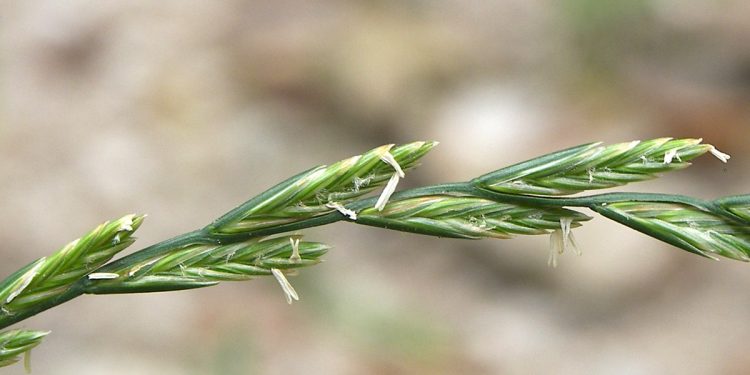#RevolutionizingAgriculture #LoliumPerenne #SustainableAgriculture #CropYield #NitrogenFixation #SoilHealth #FoodSecurity
As the global population continues to grow, the demand for food and resources is on the rise. This has led to an increased focus on optimizing crop yield and developing more sustainable agriculture practices. One promising development in this field is the use of Lolium perenne, commonly known as perennial ryegrass, as a crop species.
Lolium perenne is a highly adaptable and resilient plant that has been found to thrive in a variety of soil types and climates. Its deep root system allows it to access nutrients and water from deep within the soil, making it less reliant on fertilizers and irrigation. Additionally, its ability to fix nitrogen in the soil reduces the need for synthetic fertilizers, further increasing the sustainability of Lolium perenne crops.
Research has shown that Lolium perenne has the potential to significantly increase crop yield, particularly in regions where traditional crops struggle to grow. It has been found to improve soil health, reduce erosion, and increase carbon sequestration, making it an attractive option for farmers looking to adopt more sustainable practices.
The development of Lolium perenne for agricultural use has the potential to revolutionize the way we approach crop production. By reducing our reliance on synthetic fertilizers and irrigation, we can decrease our environmental impact and create a more sustainable future for agriculture. Furthermore, the increased crop yield provided by Lolium perenne could help to address food insecurity and improve global food systems.
In conclusion, the development of Lolium perenne for optimal crop yield is a promising development in the field of agriculture. Its ability to thrive in a variety of conditions, improve soil health, and increase crop yield has the potential to revolutionize the way we approach food production. With further research and development, Lolium perenne could become a vital tool in creating a more sustainable and food-secure future.







